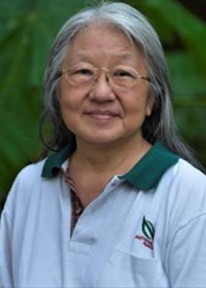
Dr. Lena Chan, Senior Director, International Biodiversity Conservation Division, National Parks Board of Singapore
Learning from our past experiences, it is clear, that if we want to ensure that the Post-2020 Global Biodiversity Framework will be a success, we must focus on its implementation right from the start.
How do we carry out effective implementation? Due to time constraint, I shall focus on 3 points:
(a) As several of you have articulated, we need to be all inclusive and comprehensive in the implementation process involving all levels. Every individual, local communities, etc. must partake in this journey. The most effective level that has administrative capacity to organise, monitor and report is the city level. This is particularly relevant and appropriate as there are more people living in cities than rural areas. Moreover, there is rich biodiversity in cities.
(b) The second point is that it is crucial that more efforts must be accorded to habitat restoration and enhancement, especially when UN has designated 2021 to 2030 as the Decade of Ecosystem Restoration. Species recovery can only succeed when habitats of these species are restored or enhanced. Connectivity improvement would inevitably strengthen with habitat restoration.
(c) The third point is the importance to carry out quantitative monitoring of biodiversity conservation efforts. If we do not measure, how can we manage more effectively? We should not reinvent the wheel. There are many existing monitoring tools that can be fine-tuned. These well-tested tools can be applied immediately as soon as we finalise the Post-2020 Global Biodiversity Framework, instead of developing indicators years after 2020!
In a nutshell, we should be committed to take positive and pragmatic actions immediately on the adoption of the Post-2020 Global Biodiversity Framework.